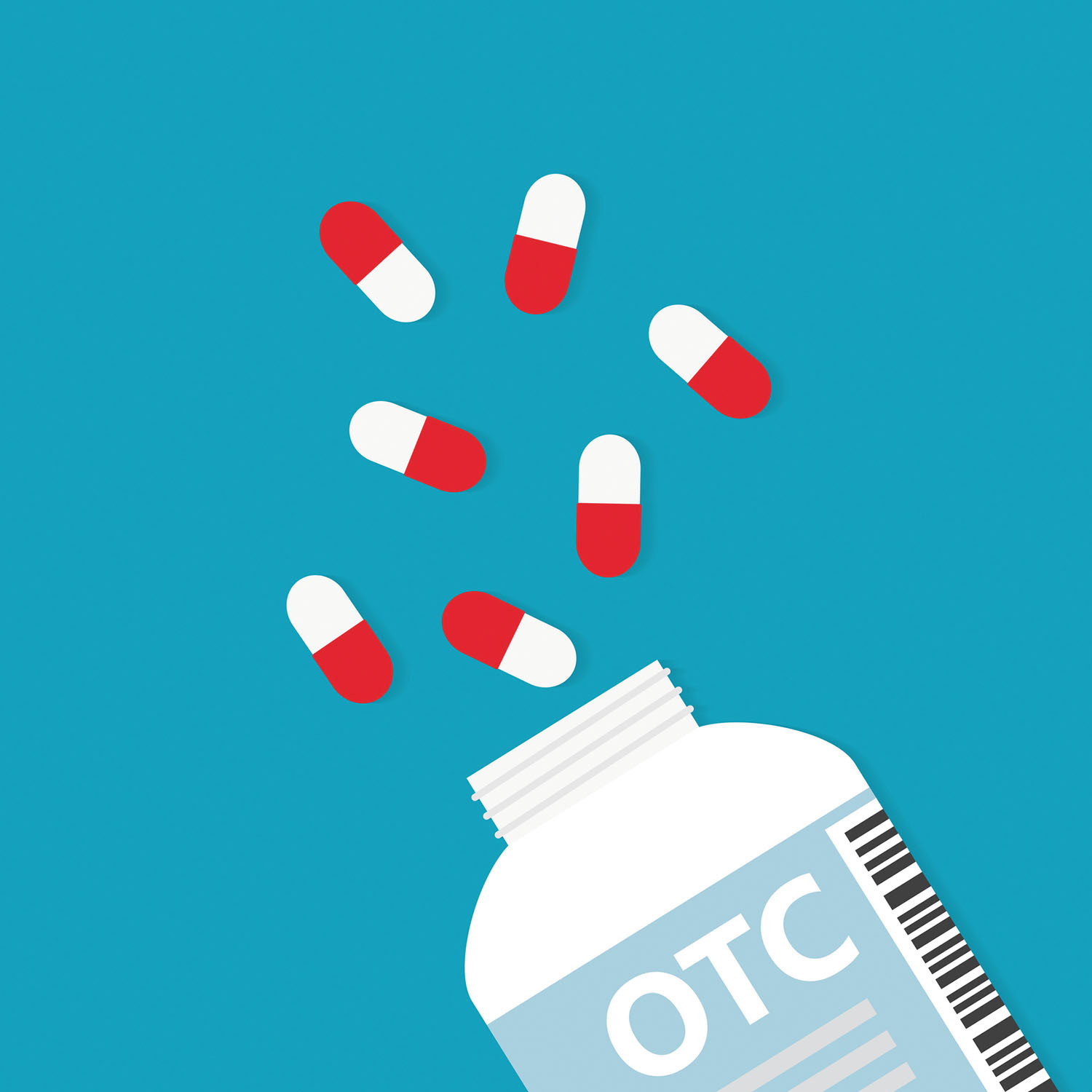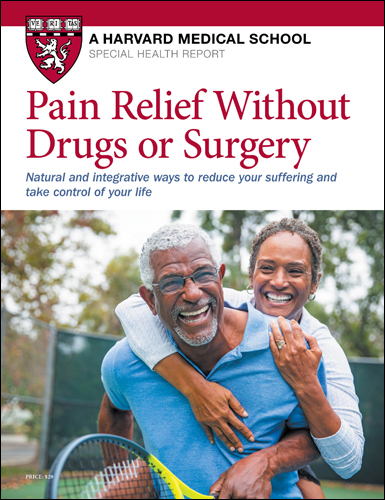Know your pain relievers
Here's how to safely use over-the-counter pain medication.
- Reviewed by Howard E. LeWine, MD, Chief Medical Editor, Harvard Health Publishing; Editorial Advisory Board Member, Harvard Health Publishing

Low back pain? Achy joints? Overdo it when you were working out or doing outside work? One of the easiest remedies is to pop an over-the-counter (OTC) pain reliever. Most of the time, this does the trick. But what if the ache or pain is more frequent and you take these pills on a regular basis? How do you know when you have overused them?
"OTC pain relievers can be fairly potent medicine and help reduce most inflammation and pain," says Dr. Christopher Gilligan, a pain medicine physician with the Division of Pain Medicine at Harvard-affiliated Brigham and Women's Hospital. "But people may not think of them as real medicine and so don't always use them as directed. This can lead to serious problems."
Are nonprescription pain relievers as good as opioids?For years, opioids were usually prescribed to treat pain after a medical procedure or surgery, or for pain management. But with the increasingly recognized risk of addiction and opioid side effects, over-the-counter (OTC) pain medication may be a safer option, and perhaps even a better one. One study found that taking acetaminophen and ibuprofen together provided greater pain relief than opioids after a tooth extraction. Other research showed that OTC pain relievers were as effective as opioids for treating sciatica pain. "OTC pain relievers could be a viable and effective treatment in most circumstances," says pain specialist Dr. Christopher Gilligan with Brigham and Women's Hospital. "Check with your doctor about first trying OTC medications to see if they work. Don't think you automatically need a strong prescription pain reliever." |
Two categories
The two main categories of commonly used pain relievers (also known as analgesics) are acetaminophen and nonsteroidal anti-inflammatory drugs (NSAIDs).
Acetaminophen (Tylenol) controls pain and fever but doesn't help with inflammation. It's an active ingredient in many drugstore headache and cold remedies. NSAIDs include aspirin, ibuprofen (Advil, Motrin), and naproxen (Aleve, Naprosyn). These ease pain and lower fever like acetaminophen, and also work as anti-inflammatories. NSAIDs are popular pain relievers for inflammation-related conditions like arthritis and injuries. "While people are more familiar with OTC brand names, generic versions work just as well and are less expensive," says Dr. Gilligan.
Potential side effects
According to Dr. Gilligan, the ideal approach to taking these medications is to use the lowest effective dose over the shortest period of time. "If you need OTC medication for pain relief daily for at least two weeks or longer, or if the maximum recommended dose on the label no longer helps, you should see your doctor."
Further, some individuals should never take an NSAID without first checking with their doctor. These include anyone taking an anticoagulant or antiplatelet drug (blood thinner) and those with a history of a peptic ulcer, impaired kidney function, or heart disease. Like any drug, OTC pain relievers can have side effects if overused. For example:
Acetaminophen. High doses can damage the liver. The maximum recommended per day is usually 4,000 milligrams (mg), equivalent to 12 regular-strength or eight extra-strength Tylenol tablets. It's also possible to develop liver problems after taking small to moderate amounts if done so over an extended period.
To be safe, take no more than 3,250 mg of acetaminophen a day. The FDA recommends using products containing no more than 325 mg per pill or capsule to avoid excessive dosages. Also, be cautious when mixing multiple products containing acetaminophen, such as a pain reliever, a cold medication, or a prescribed narcotic. "And do not take acetaminophen if you drink alcohol more than moderately on a regular basis or if you have liver disease," says Dr. Gilligan.
NSAIDs. The most common side effect is stomach irritation which may cause pain, bloating, or heartburn. These medications also may cause ulcers, which can lead to internal bleeding. Excessive use of NSAIDs increases the risk of heart attack, stroke, and kidney failure. The most common daily limits are 1,200 mg for ibuprofen and 660 mg for naproxen.
All NSAIDs (except aspirin) tend to boost blood pressure. While the effect is most potent in people who already have high blood pressure, anyone taking an NSAID may see an increase in readings.
People who are concerned about possible side effects can try topical pain relievers, such as products containing diclofenac (Voltaren gel) or lidocaine. "They are a safe choice for pain due to soft tissue injury or osteoarthritis as smaller amounts are absorbed by the body," says Dr. Gilligan.
Image: © chrupka/Getty Images
About the Author

Matthew Solan, Executive Editor, Harvard Men's Health Watch
About the Reviewer

Howard E. LeWine, MD, Chief Medical Editor, Harvard Health Publishing; Editorial Advisory Board Member, Harvard Health Publishing
Disclaimer:
As a service to our readers, Harvard Health Publishing provides access to our library of archived content. Please note the date of last review or update on all articles.
No content on this site, regardless of date, should ever be used as a substitute for direct medical advice from your doctor or other qualified clinician.
















